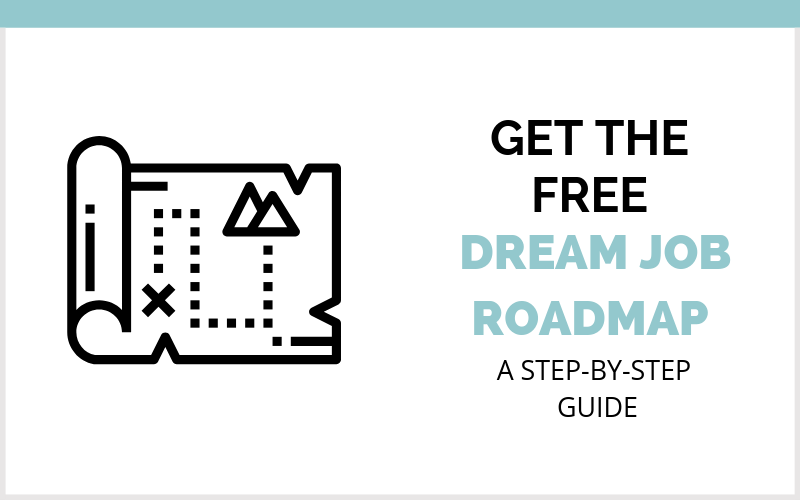A Corporate Real Estate Leader is critical towards corporate success. Find out what they do and how Lorena Compean paved her way to this rewarding career.
Exploring Careers Q&A Series: Corporate Real Estate Leader
Isn’t it funny how our careers unfold over the course of our lifetime? For some professionals, they knew what profession they wanted to obtain and went to school accordingly. For example, nurses obtained a nursing degree, attorneys went on to law school, and real estate professionals studied for their state’s real estate license.
But have you ever wondered about professions that don’t have one specific degree or certification? This series explores those careers that are less obvious and open to a diverse set of backgrounds and credentials. Hopefully, you can understand the foundation and skills needed to successfully land a rewarding career, too!
I had the privilege of crossing paths with an ambitious business leader, Lorena Compean. Lorena enjoys running marathons on various continents when she isn’t in the office. With her diverse, international background, living in three countries (Mexico, Malaysia, Hong Kong), she is here to shed light on the profession she fell into and loves: corporate real estate strategy & development!
Without further ado, let’s welcome Lorena!
So Lorena, can you tell me what the heck a Corporate Real Estate Leader is?
Corporate real estate leaders have a strategic responsibility for their corporation’s total real estate footprint of leased and/or owned space. This means, corporate real estate leaders are responsible of anticipating and responding to a corporation’s property needs as a result of business growth, expansion, or contraction. We generally manage huge portfolios with millions of square feet and in multiple locations.
As the industry has developed, a lot of the corporate real estate departments currently partner with external service provider companies to deliver services needed to acquire, maintain, and dispose of real estate. A broad range of corporate services are required to support the corporate real estate function, including but not limited to brokerage, site selection, architecture and interior design, lease administration, facilities management and technology platforms.
Can you describe what a typical day looks like in your shoes?
Every day is different in my shoes. My role is responsible for the end-to end-management of Front of House (Reception), Corporate Food Services, Fitness Services, Mail Services, Secured Destruction, Office Supplies, Office Stationery, Reprographics (Copy Center), Ground Transportation (Cars & Shuttle Bus), Vending Machines etc. in over 13 countries across Asia Pacific for a global financial institution.
One day could start with a discussion of an initiative to introduce healthier food options in the cafeteria, followed by training to the reception team on a new system, solving an issue of an invoice, negotiating the price for recycled paper with a supplier, and finishing with a call to our European team to discuss the standardization of the delivery of certain services across regions.
Wow. That doesn’t sound like a dull day at all. How did you get to where you are today?
I double majored in Business Management and Public Accounting & Financial Strategy from an undergraduate program in Mexico. After college, I joined a consulting firm which focused on generating savings for clients in indirect spend (not core business spend). After 5 years of consulting, I wanted to explore a different region of the world and decided to pursue my MBA degree in Hong Kong.
After receiving my MBA, I was hired by a global real estate leader company to procure all facilities management services (think cleaning, mechanical and engineering areas), because the skills were very similar to my strategic consulting role in Mexico. When I joined this global leading company, I gained more exposure to the Corporate Real Estate cycle (acquisition, maintenance, and disposal of real estate). It was here I started learning a lot about commercial real estate.
I pushed myself to expand my role’s scope by volunteering to run mini projects for other departments. This allowed me to understand more about Corporate Real Estate. Through this experience, I learned about terms, risks, and issues as well as details of day to day operations.
In 2015, when an internal opportunity opened, I told my manager I was interested in operations within facilities management. It was a natural transition as I already knew the team and the responsibilities for that position.
That’s really smart of you to find internal opportunities that would give you the knowledge and skills for your ultimate move. What skills lend to your success in this career?
I believe soft skills are the most important. Most of the service industry is all about people. Managing relationships and executing projects with teams is critical. I believe as the industry develops, new technology may replace some of the tasks, and information will give access to make decisions in a more “intelligent way”.
For example, a lot of corporations are focusing on motion studies to try to understand how employees use their work station. Using this data to find the best balance of fixed desks has allowed for increased productivity. Other technology also provides the opportunity to see all real estate available, to understand price per square foot, view lease expiry dates and market data to define the best strategy for the foot print in each region.
While technology has helped with efficiencies, leadership skills, management of stakeholders, and communication are key skills that will not be replaced.
What do you love about your job?
I love that every day presents a new challenge. It is very dynamic and I love that every single initiative has an impact on the daily life of many people who work in the office. With a very simple thing you can change the perception of the office space and can make people happier within their office environment. Companies can find impactful yet simple ways to show they care about the wellbeing of employees. This ultimately leads to an improvement in productivity and a decrease in absences.
Conversely, what do you wish you could change?
I would like to change the perception of this job and the industry. Most people spend about 70% of their time every week in the office. Having a nice and pleasant environment to work is very important. If companies focus more on Corporate Real Estate Development, there are many benefits from huge amount of potential savings in rent, to staff retention, and improvement of performance.
What’s one piece of career advice you can offer to those looking to make a transition into this field?
Be curious because that is how I got into this industry. Observe your office environment, and be curious about how things get done. A clean desk with a computer and a healthy and safe office didn’t come about naturally. There are people behind this imagery that produce this result on the landlord side or on the tenant side. With an inquisitive nature and asking yourself, “How did this happen?” … “How did this get done?” you’ll be surprised to discover there is someone behind the scenes holding this job.
Are there any resources, organizations, professional groups, certifications, etc., that would be helpful?
If you are keen to learn more about this profession, I would encourage you to approach Corenet, the largest global organization of Corporate Real Estate professionals. Find your closest Corenet chapter and join some events to learn about all the different opportunities within the Corporate Real Estate function.
Another certifications I believe is valuable in this field is LEED (Leadership in Energy and Environmental Design), which relates to sustainability in real estate field.
Woohoo! Thanks, Lorena. Last question: What is one career advice you would give to anyone, knowing what you know now?
Unconventional jobs could be great and might give you lot of personal satisfaction which traditional jobs may not. Try to volunteer and get involved in larger projects where you have to interact with multiple areas of any organization. Networking is key. This way, you may find some hidden opportunity to find your dream job.
Thank you so much, Lorena, for shedding light on the Corporate Real Estate field!









